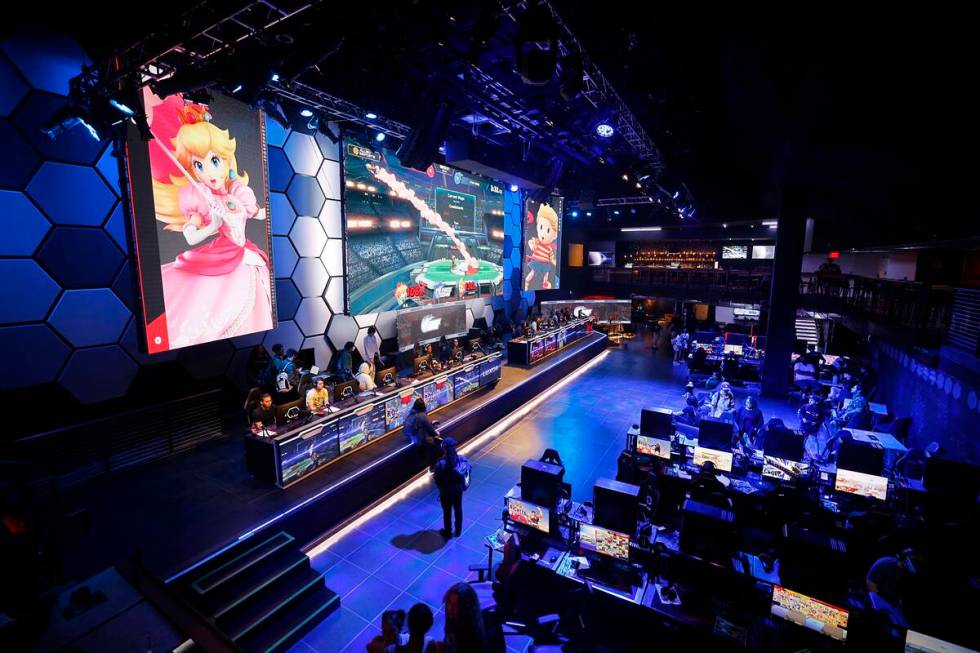Nevada won’t require esports participants to test for performance-enhancing drugs

The Nevada Gaming Commission won’t prohibit esports participants from using performance-enhancing drugs or mandate a program to deter doping.
Commissioners on Thursday approved amendments to a regulation aligning esports with conventional sporting competitions that give Nevada sportsbooks greater flexibility in listing video game competitions and tournaments on their betting boards.
The regulation revision enables books to allow betting on esports with most of the same restrictions that apply for conventional sports — that events are appropriately supervised, have verifiable outcomes and have effective integrity safeguards in place.
Previously, esports events could be wagered on if an operator made a request reviewed by the board chairman.
But one section of the proposed amendments that didn’t make the cut was a phrase involving doping.
The language under consideration said, “A book may accept wagers on an esports event if the book … has effective integrity safeguards in place, including … prohibitions on doping by participants and an effective program to deter doping …”
Representatives of the Entertainment Software Association said it would be virtually impossible for event operators to assure books that its participants wouldn’t use some form of drug while participating.
“The antidoping requirement is both unnecessary and will have the effect of making most esports tournaments ineligible for wagering, as most event operators see antidoping measures to be cost prohibitive,” Tara Ryan, vice president of state government affairs for the association said in written testimony.
Her sentiments were reiterated verbally at the meeting by Alisa Nave, a consultant for the association.
Replying to a commission inquiry, Nave acknowledged the possibility of participants using Adderall, a stimulant used to treat attention deficit hyperactivity disorder and narcolepsy, and caffeine.
“There is a lack of empirical evidence that any particular substance confers a material performance-enhancing benefit to esports players,” Ryan said. “Absent such a showing, it is unnecessary to impose programmatic requirements related to those substances.”
She added that there would be significant practical impediments for implementing drug testing for competitions, including that many participants play remotely from around the world.
Ultimately, commissioners voted to delete the requirement from the amendment, which was first drafted in January.
Several gaming companies have sought an easier process to enable wagering on esports because of its worldwide popularity.
Newzoo’s Global Games Market Report estimates there were 249.5 million occasional viewers and 240 million esports enthusiasts, a combined esports audience of 532 million in 2019. After a lull in viewership during the COVID-19 years, attendance is higher than ever globally with fans in Asia and North America dominating attendance.
Wagering locally has lagged, even with pockets of support throughout Southern Nevada. Regularly scheduled competitions that can be viewed online and tournaments have been conducted at the HyperX Arena at Luxor. Other venues, including the Sphere, have indicated a desire to offer esports competitions.
Company fined
In other business Thursday, commissioners unanimously approved a stipulation of settlement fining a small Carson City company $2,000 for failing to disclose the death of one of its directors.
Leids Inc., which operates P&L Launderland and Washtubs Coin-Laundry, two restricted licensees, was fined because company executives failed to disclose the death of licensee David Leid in October 2020. Control Board agents were not informed of the death until a year later, violating notification rules.
Contact Richard N. Velotta at rvelotta@reviewjournal.com or 702-477-3893. Follow @RickVelotta on X.